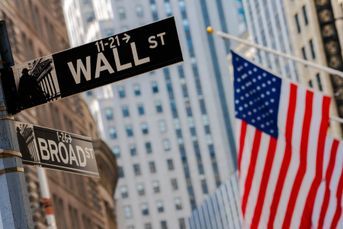Merrill Lynch is developing its own robo-adviser

Merrill Lynch has dozens of employees working on a robo-adviser prototype for Merrill Edge that's set to be unveiled next year.
Bank of America Corp.’s “thundering herd” of Merrill Lynch financial advisers is about to be joined by a robot.
The firm has put dozens of employees to work on an automated investment prototype for Merrill Edge, which targets accounts under $250,000, according to two people with knowledge of the project. Bank of America intends to unveil the service next year, said the people, who asked not to be identified speaking about company plans.
Banks view robo-advisers, which use algorithms to provide investment advice online and with little or no human contact, as a disruptive technology that can help attract younger investors before they get hooked on a competitor’s platform. Executives at Morgan Stanley, which owns the U.S. brokerage with the most human advisers, and Wells Fargo & Co. have recently said they would develop or acquire a robo-adviser.
“That is a real threat to our business, because we are disproportionately full-service, high-value-added, person-to-person activity, which isn’t for everybody,” John Shrewsberry, Wells Fargo’s chief financial officer, said in June. “There’s generations of tomorrow’s investors coming up today who may be more attracted to something less person-to-person and more technologically enabled.”
(Related: Wells Fargo Advisors chief: Clients expect a more digital experience)
Bank of America sees an opportunity “for a robo-advised offering that could complement the advice and guidance offered by our financial solutions advisers,” said Anne Pace, a company spokeswoman.
BETTERMENT, WEALTHFRONT
Startups that popularized robo-advice include Betterment LLC, which launched in 2010 at a TechCrunch Disrupt conference in New York, and Silicon Valley-based Wealthfront Inc.
Users, who tend to be high earners under the age of 50, provide their risk tolerance, age, income and goals online or through a mobile app. Algorithms suggest investments, usually in a basket of low-cost exchange-traded funds, and regularly rebalance the portfolio and realize losses for the sake of tax efficiency.
Without human advisers — people are the biggest expense at any securities firm — the new ventures can charge annual fees of 0.5% of assets under management or less. That undercuts full-service brokers, which typically charge annual fees of at least 1 percent. On a $100,000 investment, the difference could mean more than $50,000 in savings over 20 years, given the same annual returns. The gap can widen further because the ETFs used by robo-advisers are cheaper than most mutual funds sold by humans.
“The difference in cost to the consumer is so significant that it can’t be ignored,” Bob Hedges, a partner at consulting firm A.T. Kearney, said in an interview.
https://www.investmentnews.com/wp-content/uploads/assets/graphics src=”/wp-content/uploads2015/12/CI102343116.JPG”
The industry has seen dramatic growth, from almost zero in 2012 to a projected $300 billion in assets under management at the end of next year, according to a June report from A.T. Kearney. This year alone, Betterment almost tripled its assets to $3 billion. Robo-advisers could manage $2.2 trillion by 2020, the report said.
(More: Betterment crosses $3 billion in assets, blows by robo startups)
‘COMMON SENSE’
“The robo-advice tool, which is an asset-allocation tool, is kind of taking common sense and putting it into a very user-friendly model,” Morgan Stanley CEO James Gorman said this week during the New York Times Dealbook conference. “If places like us don’t have that capability, we should have that capability, whether we build or buy, we should have it.”
Mutual fund companies including Charles Schwab Corp. and Vanguard Group Inc. already have created their own automated offerings, and BlackRock Inc. said it bought FutureAdvisor in August.
(Related read: Robo-advisers want to plan your clients’ future)
Merrill Lynch’s 14,563 full-service advisers — who typically manage clients with more than $250,000 in investments — are among the most productive in the industry, bringing in more than $1 million dollars each in revenue annually. Bank of America, based in Charlotte, North Carolina, has $2.4 trillion in client assets, the most of any U.S. bank. In 2010, it started Merrill Edge, a discount brokerage that targets clients on the lower end of the wealth spectrum and now manages $117 billion for 2 million customers.
As low-cost providers take a larger percentage of the wealth-management industry’s total pie, revenues will fall by as much as $12 billion by 2020, according to the A.T. Kearney report. The ranks of financial advisers will shrink as consumers switch to robots and some human brokers adopt robo-tools to become more productive, Mr. Hedges said.
For their part, bank executives don’t think virtual advisers will replace many people anytime soon. Higher-net-worth clients need estate planning, advice on taxes or complicated financial arrangements that algorithms can’t handle. Like a luxury carmaker offering an inexpensive base model, robo-service can be a gateway to the firm’s pricier offerings.
“Some will flourish with the change, and others will struggle,” Mr. Hedges said. “What’s unfolding is a broad repricing of what financial advice costs.”
Learn more about reprints and licensing for this article.








